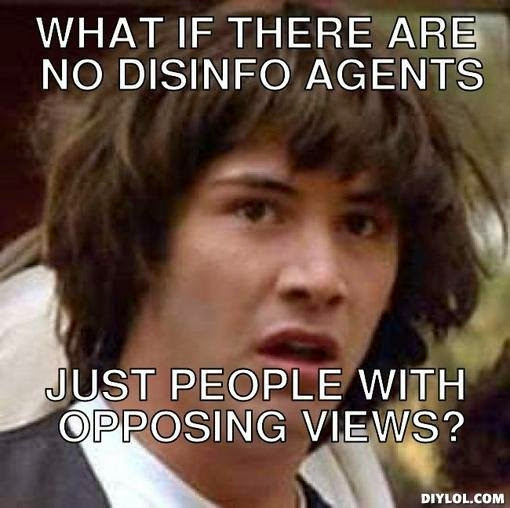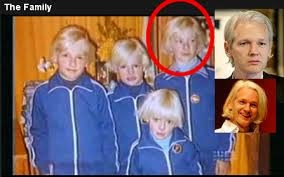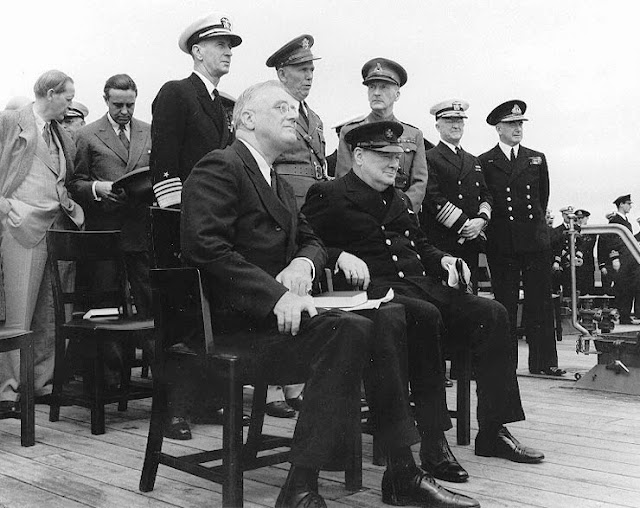California Proposition 64, or the Acquired Immune Deficiency Syndrome Act of 1986, was on the November 4, 1986 ballot in California as an initiated state statute, where it was defeated.
Yes: 2,039,744 (29.3%)
No: 5,012,255 (70.7%)
"Declares that AIDS is an infectious, contagious and communicable disease and that the condition of being a carrier of the HTLV-III virus is an infectious, contagious and communicable condition.
Requires both be placed on the list of reportable diseases and conditions maintained by the director of the Department of Health Services. Provides that both are subject to quarantine and isolation statutes and regulations.
Provides that Department of Health Services personnel and all health officers shall fulfill the duties and obligations set forth in specified statutory provisions to preserve the public health from AIDS."
The one enduring legacy of Live Aid (other than war) is the Social Construct and Public Myth of African AIDS.
— Peter Duesberg
In 1980, Dr. Robert Gallo, a retrovirologist with the National Cancer Institute, discovered the first human retrovirus (HTLV-I). A retrovirus is distinguished from an ordinary virus by virtue of the fact that its RNA is converted to DNA by an enzyme called reverse transcriptase. Its replication and survival is totally dependent on the viability of the host cell. If the host cell dies, the virus is finished. Dr. Gallo knew this basic fact; however, he would soon purposely ignore this fact in order to serve his own needs by claiming that the virus was very "mysterious". Somehow it would mysteriously survive while mysteriously slaughtering T-cells by the millions (this has never been observed). He had contended in the past, but failed to prove, that the very same retrovirus (HTLV-I) caused a specific type of leukemia which was occuring in Japan. The power of position, that of being a top government official and scientist, has allowed the erroneous label of "leukemia virus" to remain intact even though it was rejected by the scientific community.
In 1981, it was proposed that an acquired immune deficiency was the basis for a new syndrome of diseases (AIDS) that appeared to be surfacing amongst promiscuous male homosexuals and intravenous drug users. Dr. David Durack, of Duke University, a recognized expert on infectious diseases and the immune system, though admitting the prevalence of drug use (particular "poppers" or amyl nitrites) and repeated multiple infections, ignored these well-known causes of immune deficiency and announced that this "truly new syndrome" must be due to "some new factor". Continuously this group of scientists has resorted to theory, not fact, as to how the AIDS virus supposedly accomplishes its dirty deeds. The words, "it is thought", are constantly used in casual conversations or in the non-scientific articles and popular magazines and books. In the scientific journals or at lectures the theory is presented as established fact although there are no facts involved. It is portrayed as an established truth and therefore is accepted as such by most scientists, including physicians. The so-called HIV virus is still referred to as a "new" virus in spite of the indisputable evidence to the contrary. Incorrectly, the virus has been characterized as "attacking" or "infiltrating" the immune system, when in reality this is impossible because it is not alive and does not invade. Retroviruses are engulfed by the cells and incorporated into the cell's life processes.
In 1983, Dr. Gallo embarked on a mission to convince his fellow scientists, in the absence of any scientific experimental proof whatsoever, that another virus he had discovered caused AIDS. At a widely publicized press conference held in Washington, D.C. on April 23, 1984, Dr. Gallo announced that he had discovered the cause of AIDS. He claimed the unearthing of a new retrovirus which he had named HTLV-III, thus inferring that it was a member of the family of retroviruses he had previously discovered. His claim was bolstered by Margaret Heckler, Secretary of the Department of Health and Human Services, who was under great pressure to come up with some answer to the looming "epidemic". Heckler announced, "Today we add another miracle to the long honor roll of American medicine and science." She also promised that we would have a vaccine within two years, undoubtedly as a result of Dr. Gallo's grandiose urgings. That very day, Dr. Gallo filed a U.S. patent for an HIV test kit which was destined to make him very wealthy. Dr. Gallo, unquestionably very knowledgeable in retrovirology, chose to set aside the facts and became the quintessential intellectual whore.
The benefits to Dr. Gallo are money and power; but the costs to humanity are suffering and countless unnecessary deaths.
In contrast, street prostitutes are honest – you know what you're getting and you know the risks – and, by the way, AIDS is not one of them.
Margaret Heckler very quickly awarded the lucrative contract for AZT to Burroughs-Wellcome Pharmaceutical Company before the first scientific paper ever appeared in any U.S. journal. AZT was a drug in search of a disease. It had been sitting on the shelves of the National Institutes of Health since the 1960's. It was an experimental drug that had failed as a cancer remedy and had been declared too toxic to use. Retrovirology had gained importance because of Nixon's "War on Cancer" and the belief that a retrovirus might be the cause of cancer in humans.
This approach seemed logical at the time, because retroviruses typically prompted cells to multiply – a characteristic of the cancer process.
This is directly opposite to the cell destruction that normally occurs in viral infections.
America's Hitler? Behind the California AIDS Initiative
By DENNIS KING
New York Native, November 3, 1986
The battle over Proposition 64, California's AIDS quarantine initiative, is raging hot and heavy. The medical community opposes it as being irrational and unscientific, but polls indicate that it has significant public support. Its sole champion among elected officials, Congressman William E. Dannemeyer (R-Cal.), describes it as a legitimate public health measure.
In fact, Proposition 64 is a political/ideological maneuver which has little to do with AIDS or public health. It was dreamed up by the Virginia-based extremist and three-time Presidential candidate, Lyndon LaRouche, to cash in on the public worry over AIDS and the recent resurgence of gay-bashing. It was LaRouche who coined the rallying cry for the Prop. 64 campaign, "Spread Panic, not AIDS." Followers of LaRouche drafted the measure, circulated the petitions, and are now doing most of the campaigning for it. A LaRouche-linked business, Caucus Distributors, Inc., has provided most of the funding.
Experts on the LaRouche organization say they doubt that LaRouche cares at all about stopping AIDS or helping its victims. "Considering his view of gays as subhumans, the logical belief for him would be the more AIDS the better," says Russ Bellant, a consultant on right-wing groups. Publications of the LaRouche organization are peppered with words like "faggot" and "queer," along with allusions to the possible need for violence against gays, whom the LaRouchians generally equate with child molesters.
The opponents of Prop. 64 have not been silent about LaRouche's role; one of the main committees opposing the measure is called "Stop LaRouche." But Prop. 64's critics have sometimes lacked solid information about LaRouche's ideology and tactics, according to Joel Bellman, a reporter at KBIG-FM radio in Los Angeles, who is closely following the campaign.
Thus, when the issue of LaRouche's involvement came up in debates or on talk shows early in the campaign, spokespersons for Congressman Dannemeyer or for PANIC (LaRouche's committee supporting the measure) often succeeded in steering the debate back to the crackpot medical theories which serve as a smokescreen for LaRouche’s political objectives.
LaRouche worked out his ideology and tactics in the late 1970s, in a series of books and articles with such titles as The Case of Walter Lippman, The Secrets Known Only to the Inner Elites, and A Machiavellian Solution for Israel. In these tracts and in writings by several of LaRouche's top lieutenants, history was depicted as a struggle for the true human race to assert itself against the degenerative influence of assorted subhumans such as Jews, gays, Freemasons, witches, Jesuits, and (most recently) the Slavs behind the Iron Curtain.
The subhumans, according to LaRouche and company, are led by an "evil species" outside the human race: the "Zionist-British organism." To defeat this ancient enemy and save humanity, LaRouche taught, it is necessary to have a "grand design" in the spirit of Alexander the Great, Frederick Barbarossa, and other conquerors who marched East. His own grand design included setting up a dictatorship in America, purging the "Jewish lobby" from public life, and preparing for "total war."
It was classic neo-Nazism, but even disguised in code words and metaphor it could hardly be sprung directly on the public. LaRouche began to experiment with ways to inject it indirectly. He launched a "war on drugs" which appeared legitimate until you read the fine print and saw that it was really a war on rich Jews and Zionists (controllers, in LaRouchian mythology, of the world drug traffic). He launched a campaign for "beam weapons." but when you examined this one closely, you saw that the messianic rhetoric and call for trillion-dollar programs had little to do with President Reagan’s "Star Wars" program, being more akin to the old Hitlerite formula of total mobilization for total war.
LaRouche’s Proposition 64 is simply the latest of these agitational gimmicks for inserting neo-Nazi ideas into mainstream political discourse. For years, the LaRouchians suggested that homosexuality is a characteristically Jewish condition, and that Jews promote it in society at large for conspiratorial reasons. Now LaRouche has tacked on the charge that Jewish bankers stand in the way of stopping AIDS.
Big Lie Number One: Gay Equals Jewish
This is an old theme with the LaRouchians. Their newspaper New Solidarity raved in the late 1970s against the "faggot politics" of "Zionist-supporting" gay activists, but the publication also targeted Jews who were not part of the gay community. A cartoon strip depicted New York investment banker Felix Rohatyn (regarded by the LaRouchians as a central figure in the world Jewish conspiracy) as participating in a homosexual banquet with other prominent New York Jews, including Mayor Edward I. Koch (labeled the "Emperor of Homohattan") and union leader Albert Shanker ("Albertius Judas").
In the following years, the LaRouchians repeatedly accused prominent Jews and pro-Zionists of homosexuality--of being part of an international "Homintern." LaRouche wrote a broadside on Henry Kissinger which he entitled "The Politics of Faggotry." According to LaRouche, Kissinger's alleged "heathen sexual inclinations" are merely an integral part of a larger evil," adding that "psychologically," Kissinger is of "a distinct species." Earlier, writing on psychoanalysis, LaRouche taught that the alleged pathology of the Jewish family, especially that of the "Jewish mother," produces sexual problems and repulsive psychological traits in young Jews. That idea has recently been refined. The March 7 issue of LaRouche's newspaper included an article, "Jewish Mothers in the Age of Aquarius," which expressed, through a sick joke, the idea that homosexuality is the natural outgrowth of being raised by a Jewish mother.
Big Lie Number Two: Jews Promote Immorality
In a November 1985 speech, LaRouche called AIDS a "manmade evil" and linked it to "evil cults out of Babylon" (the LaRouchians see the origins of the "cult" of Judaism in Babylon, and, like the Ku Klux Klan, they frequently use Babylon as a code word for Jews). In "The End of the Age of Aquarius" (January 1986)--a long rambling tirade against the Babylonians, the "British" (another LaRouche code word), Henry Kissinger, "usurers," and "cabalists" (practitioners of a Jewish mystical tradition)--LaRouche stated, "Homosexuality was organized in the United States. It wasn’t something that sprang from the weeds...It was organized..."
These two pieces are not unique in the LaRouchian canon. Prop. 64's sponsor has charged in numerous articles over the past decade that the oligarchical enemy encourages sodomy, sodomic rites, a homosexual lifestyle, and a homosexual state of mind, all as a conspiratorial means of controlling the masses and undermining Western civilization.
Big Lie Number Three: Jews Stand in the Way of the Fight Against AIDS
LaRouche, in an October 1985 article linking the U.S. government's monetary policy to AIDS, said, "Shylock demands his pound of flesh, and cares not in the least whether the collection kills the debtor." LaRouche continued, "Shylocks have their own reasons. To unleash the kinds of public health measures needed to stop AIDS' spread, would require a dumping of the present policies of the international monetary system..."
Of course, it follows from the latter belief, in LaRouche's conspiratorial logic, that anyone who opposes LaRouche's plan for fighting AIDS must be working for the Shylocks and is probably also Jewish. In an August 18 article, LaRouche lashed out at "Meyer Lansky's and Sidney Korshak's Hollywood" for opposing Prop. 64. And an August 25 joke column in LaRouche's newspaper said that the Anti-Defamation League of B'nai B’rith had launched a new stop LaRouche committee called "AiDsL."
Not surprisingly, there are close parallels between LaRouche's ideas about AIDS and Hitler's thoughts on syphilis, as set down in Mein Kampf (1925). Syphilis, like AIDS, is sexually transmitted, and in the 1920s there was no cure. Hitler focused on it because of his concern about maintaining the purity of the Aryan race and preventing contamination of the Aryan "blood." He blamed victims of syphilis, especially prostitutes, for spreading it, just as LaRouche today blames gays for spreading AIDS. Hitler believed that sexual promiscuity and prostitution were the result of "Jewification of our spiritual life and mammonization of our mating instinct"; he thus called syphilis the "Jewish disease." Contrast this with LaRouche, who fulminates about "Sodom and Gomorrah" and the "Babylonian disease."
Hitler's answer to the syphilis problem was to call for a quarantine of prostitutes and other syphilis victims: "[T]here must be no half-measures; the gravest and most ruthless decisions will have to be made. It is a half-measure to let incurably sick people steadily contaminate the remaining healthy ones....[I]f necessary, the incurably sick will be pitilessly segregated--a barbaric measure for the unfortunate who is struck by it, but a blessing for his fellow man and posterity."
LaRouche, in "The End of the Age of Aquarius," urges much the same idea: "[W]e’ve got to contain [AIDS], we can’t find a miracle cure that fast; we’re going to have to use methods of public health, which means we're going to have to put away every carrier until they can no longer carry; and if you don’t do that, you don’t care about your neighbor or your children.”
In reading the section of Mein Kampf dealing with syphilis and the section of LaRouche's "Aquarius" piece dealing with AIDS, one finds numerous parallels. Hitler says there "is no freedom to sin at the cost of posterity." LaRouche says that it's "nonsense" to be concerned with the "civil rights" of AIDS patients. Hitler criticizes the authorities for not "summoning up the energy to take decisive measures" and for their attitude of "total capitulation." LaRouche says the U.S. government is afraid to "estrange the votes of a bunch of faggots and cocaine sniffers." Hitler says that for people who refuse to fight to save their own health, "the right to live in this world of struggle ends"; LaRouche says that the American people, unless they change their attitude to AIDS and their "moral direction," will "no longer [be] fit to survive morally, and will not survive."
Where do such ideas take us? Neither Mein Kampf nor the writings of LaRouche openly call for putting Jews or political dissenters into concentration camps. Both the 1920s Nazi policy on syphilis and the LaRouche policy on AIDS claim to focus on isolating disease carriers in order to save lives.
Hitler's rhetorical caution is understandable in retrospect. He was the jailed leader of a relatively small and powerless movement (not all that much bigger than LaRouche’s) when he dictated Mein Kampf in his prison cell. Fully revealing his hand would only have delayed his release from prison. Yet he stated clearly, in his discussion of how to fight syphilis, that this struggle was towards an esoteric higher goal: "The leadership [must] succeed in representing to the people the partial goal which now has to be achieved, or rather conquered, as the one which is solely and alone worthy of attention, on whose conquest everything depends. The great mass of people cannot see the whole road ahead of them without growing weary and despairing of the task." [italics added]
LaRouche is considerably more candid than this. He and his followers aggressively link the struggle for an AIDS quarantine with the need for a new ideological "paradigm” for America. Indeed, in an August 22, 1986 editorial, LaRouche's newspaper suggested that the AIDS crisis might become the springboard for a "nationalist" revolution.
How LaRouche’s AIDS policy meshes with such a fantasy is seen in LaRouchian propaganda calling for the rounding up of prostitutes, gays, drug users--anyone who might have been exposed to the so-called "AIDS virus”--and placing all "carriers" in "special isolation hospitals, under prison guard if necessary." (The quote is from a statement by the LaRouchian candidate for sheriff of Allegheny County, Pennsylvania, last fall.) The implications are also seen in passages of the "Aquarius" article in which LaRouche discusses the possible need to "hang" or "burn" those he believes are responsible for AIDS.
Spokesmen for California’s gay community who say that Prop. 64 calls for concentration camps are, technically speaking, overstating their case. The measure on the ballot contains no such language. But the ideology and rhetoric of Lyndon LaRouche amply demonstrate that Prop. 64 is being used to desensitize the public to the idea of concentration camps. As to other schemes up LaRouche’s sleeve: His organization is on record as calling for a "Special Prosecutor's Office" to try American "Zionists" for treason. One can only wonder if the "traitors" would join the "faggots and cocaine sniffers" in the Allegheny County "special isolation" facilities.
SIDEBAR: The Double Scapegoat
Underlying Lyndon LaRouche's anti-gay propaganda is a kind of double-whammy scapegoating: If gays are Jews, and Jews are gay, then the author of hate propaganda can get twice the mileage.
For instance, a recent article in New Solidarity by long-time LaRouche aide Tony Papert charged that the gay rights movement is controlled by a "network of pederastic satanists" who kidnap children for use as "human sacrifices" in "rituals that often feature cannibalism."
The charge is remarkably similar to the so-called "blood libel" against Jews: the belief, widespread in medieval Europe, that rabbis kidnapped Christian children and used them in ritual sacrifices. The latter belief is so discredited today that anti-Semites can no longer use it directly against Jews and convince anyone. So LaRouche and his followers use it against gays, then slyly equate gays with Jews in other agitational materials.
An alternate LaRouchian approach is to introduce muted or sanitized versions of the blood libel. Instead of accusing Jews or gays of murdering children, LaRouchians accuse them of controlling organized crime, Hollywood, and the record industry, which in turn are said to seduce children into the evil pathways of narcotics addiction and sexual hyperactivity.
This muted blood libel is rendered more effective when the LaRouchians select, as their symbol of the evil forces, a public figure with an obviously Jewish name or accent who also happens to have a controversial reputation (i.e., is easy to hate). If this Jewish individual happens to be gay (like the late Roy Cohn), so much the better. If he's straight (like Henry Kissinger), well, make up some gossip about him; people who don't like him anyway will believe it, because they want to believe it.
LaRouche is a master of such tactics. Indeed, in the midst of a 1982 harassment campaign against his two favorite enemies, LaRouche rose to heights of rhetorical inventiveness worthy of the late Joseph Goebbels:
"To understand the kind of faggot Henry Kissinger is, what Roy Cohn is," LaRouche said, "think back to the Emperor Nero and his court. Think of Studio 54, then of Nero's court, and then of Studio 54 again. Think of Roy Cohn's parties...Think of Nero, and then of Kissinger, and then of Nero, and then of Roy M. Cohn. That is the kind of faggot Henry Kissinger is. That kind of faggotry destroyed Rome. Will you permit it also to destroy the United States?"
Hollywood Accredits the Memes: The Body-Horror of AIDS from Spike EP on Vimeo.
I Hurt myself today,
To see if I still feel...



















